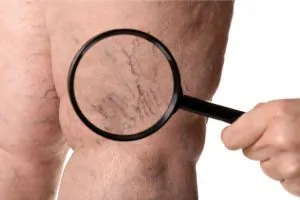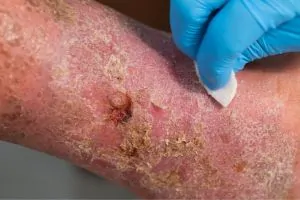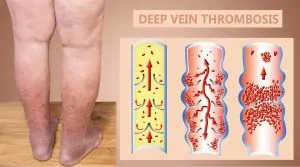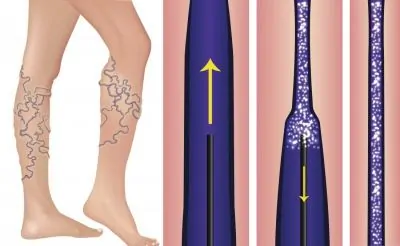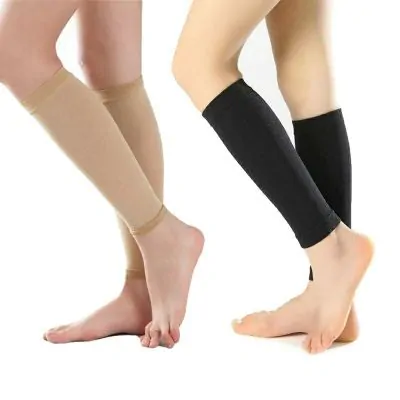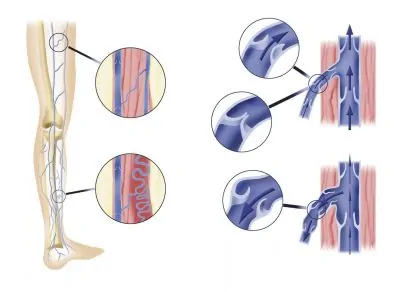Chronic Venous Insufficiency – Signs, Symptoms, & Complications
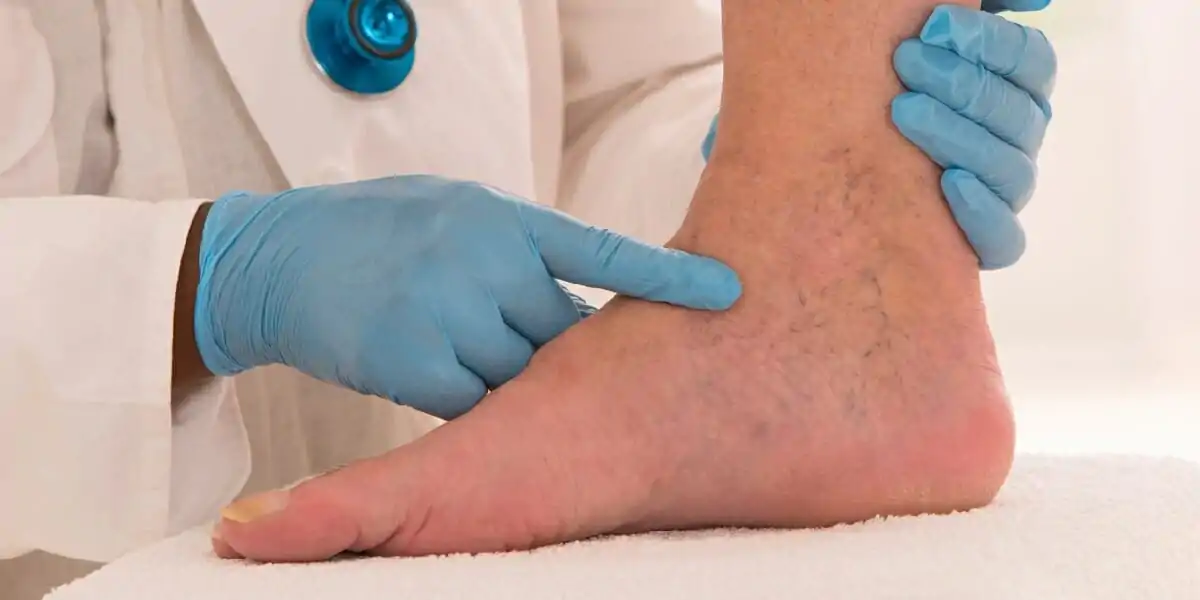
Studies show that chronic venous insufficiency, CVI, is prevalent in up to 40% of U.S. adults. CVI is a vascular condition that affects the way in which blood flows properly throughout your body.
Your arteries and veins are key components in your vascular system. They work consistently with your heart to ensure that your body’s organs & tissues are getting exactly what they need. Arteries carry oxygenated, nutrient-rich blood away from the heart and deliver it to the body. Veins take used, poorly oxygenated blood back to the heart, where it is cleaned & redistributed by the arteries again. Your body depends on this seamless cycle to cleanse organ tissues of waste and ultimately sustain a healthy lifestyle.
Understanding how the vascular system is the first step to understanding the effects of CVI. Chronic venous insufficiency occurs when venous valves in your legs stop working properly. When these valves malfunction, blood is not pushed upwards back towards the heart. Instead, unhealthy valves cause blood to flow backward. The blood then pools and causes the vein to deform and bulge.
One of the earliest signs of chronic venous insufficiency (CVI) is varicose veins. These are bulging veins that run just below the surface of the skin. When inflamed, varicose veins become tender and sore. While varicose veins usually do not typically warrant a serious cause for concern, they can be an indication that there are diseased veins throughout the entire venous system. Think of your veins like a tree, your deep veins are the tree trunk, and your superficial veins are the branches of the tree. If the trunk is sick, the branches are weak.
As aforementioned, varicose veins are usually benign and simply a cosmetic concern for afflicted patients. However, they could be linked to CVI and maybe an indication of something much more serious. If you experience any of the following symptoms in addition to your varicose veins, you could be experiencing the progressed stages of CVI.
Aching in the legs may occur as backward blood flow creates unwanted pressure in the veins. These aching sensations may flare up after long periods of standing or being stationary.
Heaviness in the legs or feet is a result of poor circulation. When the veins are damaged, as can be seen with CVI, they are unable to properly deliver blood back up toward your heart. Circulatory issues are most common in the lower extremities because your body is working hardest to fight against gravity, unlike your arms or hands.
CVI causes itchiness and hyperpigmentation in your legs because of a condition called venous stasis dermatitis. When blood cannot properly flow in your blood vessels, it can seep out of the vein and leak onto the skin. This causes skin inflammation and impedes the amount of oxygen the skin needs.
These symptoms and side effects may not seem serious as they are happening. However, as the condition worsens, symptoms will become more severe and can lead to serious health complications.
As Chronic venous insufficiency (CVI) progresses, venous ulcers form on the legs and ankles. These are open skin sores that are a result of poor circulation. Ulcers are extremely painful and even with treatment, can take months to heal. If the ulcer is not adequately cleaned and dressed while it is trying to heal, it can quickly become infected. Gangrene and even limb amputation may occur as a result of the infected ulcer.
Reduced blood flow in the legs may also lead to blood clots. CVI and deep vein thrombosis (DVT) can sometimes be linked. DVT is a condition that develops when a blood clot forms in your deep leg veins. This condition is extremely dangerous as it can lead to a pulmonary embolism, which can be fatal. The blood clot that formed in your leg can break away and travel to your lungs and keep you from getting oxygen.
The painful, and often debilitating symptoms associated with CVI can lead to a steep decline in your quality of life. Treating your condition will lead to significant symptomatic relief. At Pedes Orange County, we offer minimally invasive treatment methods for patients suffering from Chronic Venous Insufficiency (CVI).
Sclerotherapy –
A vascular Specialist will perform Sclerotherapy, a treatment where they inject a solution into the unhealthy veins. The solution causes the veins to close off and scar so that they can no longer carry blood. The body absorbs the scarred veins. Blood then returns to the heart through other healthy veins.
Radiofrequency Ablation –
RFA or Radiofrequency Ablation utilizes high-frequency radio waves directed through a catheter to create intense heat within the affected vein. The vein will then close, scar, and eventually be dissolved by the body. This will eliminate bulging and discomfort associated with those veins.
Compression Stockings –
Compression stockings are specifically designed to help improve blood flow in your lower extremities. They gently squeeze & apply light pressure to the legs slightly more than a typical pair of socks would. This is a non-surgical treatment option that will reduce the pain, swelling & discomfort associated with venous insufficiencies such as varicose veins. After a consultation at Pedes Orange County, one of our Vascular Specialists can help to find the perfect pair of fitted stockings for you. Though each case can be different, stockings should typically be worn throughout the day, taken off before bed, and put on again first thing in the morning.
While the early signs and symptoms of CVI may mask themselves as nothing to worry about, the progression of this condition can be dangerous, and even life-threatening. If you’d like to discuss your treatment options further, schedule an ultrasound and initial consultation with one of our vascular specialists at Pedes Orange County today!




